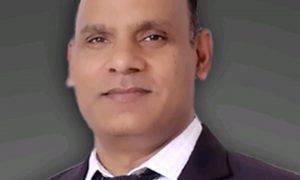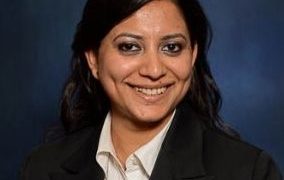Mekhla Basu graduated in BSL LLB from I.L.S Law College under Pune University in 2005. She is a qualified legal & compliance professional and senior executive with experience in advising top multinationals on operating procedures & business practices for legal & compliance requirements in the Greater Asia Region. In her professional experience, Mekhla has proficiently provided corporate consultancy to management & board of directors in top multinational companies in her career spanning over a decade; has in-depth competence in anti-trust & competition law, Intellectual Property and cyber/ e-commerce laws, privacy & data security, labour & employment, alternate dispute resolution, corporate governance & ethical landscape, risk mitigation and other complex legal issues applicable to multinational companies across industries like FMCG, Medical & Pharma and IT. Mekhla has been one of India’s youngest Regional GCs, and widely known in the industry for her core competence. Mekhla has also served as country Vice-Chair with Business Software Alliance (“BSA”) in a non-profit role.
In this interview we speak to her about:
- The Legal Compliance regime in India
- Her time at Unilever, GE Healthcare, IBM, and Intel
- Being one of the youngest General Counsels in the country
Given that most of our readers are law students and young lawyers, how will you introduce yourself to them?
I come from a family of business and engineering. In fact, I would like to point out that no one in my extended family has even studied, let alone practised, law. My interest in law started when I was very young. I come from a family of illustrated freedom fighters, including both my grandparents. Since childhood a sense of self respect, freedom and empathy towards human misery was instilled by my family and one of the ways they cleverly did that was by introducing me to reading, very early in life; in fact by the time I started school, I was already home taught to read. A voracious reader as a child, many of the inspiring characters, political thinkers, statesmen of the world were lawyers and I started viewing this profession as a noble one and one where I could help others by standing up for their rights.
What was it that got you interested in the legal field?
As I said earlier, my interest in the field of law was purely ideological. I had excellent grades in school, which had offered me an opportunity to pursue any stream – and at one point I did seriously consider studying medicine because psychiatry was another subject that intrigued me (and still does). I have always had a bit of a rebellious streak. In my generation, most bright young people with great grades were pursuing science. I had always loved reading, especially history, sociology, psychology and politics outside of my school curriculum, which had given me enough wisdom to conclude, even at a young age itself that one needs to pursue passion over trends. Even at the cost of criticism from my teachers and well-wishers I took up humanities with pure mathematics as my +2 subjects so I focus on what I want to do next- i.e. law. Through all this, I had unconditional support from my parents on the freedom of choice!

How was your experience in law school? Do you think law school prepared you for the real world practice of law?
My five years in law school was a rewarding experience; partly due to the fact that my education was self-propelled, partly because I had excellent school mates with gifted and curious minds. Debating with class mates over a cup of tea at the famous ILS canteen, or even seniors on jurisprudence was one of our favourite ways to pass time We had very good faculty as well; I still remember Mrs. Jathal and Mrs. Bhadbade who were iconic figures. It was a pleasure attending their classes. However, legal education in India is very theory centric and nothing prepares you for the fast paced, psychotic, dynamic business environment, especially as an in-house counsel that you find yourself landed in, few years hence. I must say however, internships, really help. My interest in extra-curricular was more inclined to human –rights and I had spent a couple of months doing volunteering work during the Gujrat riots, in the violence stricken city of Ahmedabad, especially helping women victims of heinous crimes find their legal rights. As a young adult, this volunteering experience propelled me toward accepting the real, politically tumultuous world we live in. I have also written extensively in books relating to the subjects of women’s rights and violence against women.
What were your areas of interest in law school? How did you recognise and cultivate such interests?
My top interest were women’s rights, intellectual property and governance related issues. All of the fields, I have had the good fortune to work in real time. I developed interest in these fields through reading, mostly and they being intrinsic subjects of relevance and interest.
What are your views about the importance of higher education?
I have considered higher studies and to be honest I still am considering. Nothing replaces the power of education and exposure to fellow brilliant minds. My suggestion will be, even though you have scholarship merit or have the means to rely on parental resources—hold-off your masters as long as you can, till you are sure about your interest in the field of law. Also, once you acquire extensive work experience, it is not necessary that an LLM will continue to interest you—getting a degree in management or finance or strategy/ leadership or even risk mitigations are all great avenues for future growth and brand building. Do this outside of India, if you can. Exposure to a foreign culture opens your mind, beyond means you can imagine. Most students use LLM degree to get the ideal job at a mid-career level. Trust me, if you are that lethal combination diligence, resilience and brilliance, you will land great jobs with great companies, anyway. Rather use your PG/ Ph.D or M.Phil degree to enhance your career and the brand you!
What was your first job after college and how did you secure it?
My first job after college was with the biggest IP law firm in the country. I had a fabulous boss who was a senior associate. She taught me the importance of having an eye for detail—the single most important skill that can be acquired through practice and this helps me in my day to day job.
Do you recall your first time appearing in court?
There is no end to preparation when it comes to Court appearances. Standing real time, in front of a judge, for a complex IP matter with an equally intimidating oppositing counsel had given me butterflies. However, once I appeared and started arguing my case, my confidence came back—thank god to the power of a thorough homework and doing a lot of research on the client’s business!
What caused you to move to being an in house counsel from working at a law office?
Frankly, I found the experience in law firms a bit limiting and political. Not to criticise anyone, I had excellent mentors in the law firms I had worked and they are still my close friends and confidants in personal/ professional life. I am talking more about the general culture of insecurity and politics and the lack of abject professional attitude with which Indian firms operate. I am extremely to the point and objective by nature who appreciates & deserves fast tracked growth and real accountability—this is where the decision to switch to a multi-national company occurred.
How did your appointment at Unilever happen?
This is an interesting story that reiterates the power of networking—which I am normally very bad at. I had applied to Unilever way back in 2006 but no suitable opportunities were offered. Incidentally, my college mate’s family friend was a senior legal Director in Unilever and during one of my work visits to Mumbai, I went across to meet him. I believe he was very impressed and encouraged me to apply again. I did so after six months, in 2007 in a suitable opening and was called for an interview. I went through five rounds of interview, including one with Executive Director, Legal and was able to impress the senior panelists with my pragmatic sense and foundations of first principles. I was being interviewed for a position in the branch office but post the interview, was told that I will be joining the head office directly, in super interesting newly created role– that of a marketing lawyer. That started my life long journey of being a generalist with an inclination for cutting edge legal issues like competition, privacy, advertising disputes and high value transaction negotiations. Ten years ago, these were very niche fields and very little to fall back on, but I’m truly glad about the trust Unilever reposed on me and having met some fantastic mentors like Mr. Rajesh Bagga and Mr. Saswat Dhar who are almost institutions in the legal fraternity. It goes a long way, when you learn from the best minds.

How did you secure a position at GE Healthcare?
Except for Unilever, in all my jobs, I have been head-hunted. For a personal reason, I needed to move to Bangalore from Mumbai. It was a risk, but one worth taking, hence I took it anyway. Healthcare as an industry is highly regulated and especially in GE the Healthcare division had several sub-divisions like equipment manufacturing, life science, pharma and health care technology. Each of these divisions had their own regulatory as well as ethical challenges and a tight-rope walking to manage the compliance as well as business profitability is a huge challenge for any lawyer in the health care segment.
How did you secure a position with IBM?
Through a leading head-hunter in Asia. This was my first role as a Compliance Officer and the switch I made from a General Counsel to a compliance role. Idealistic, as it may sound, I was tired of making money for the corporations I worked for. I wanted to do something more- make a real difference. Not by doing something drastic like taking up activism, but creating value in the corporate world itself. The role of a Compliance Officer, offers an individual that ability. Just as the nomenclature suggests, appointment as IBM’s Trust and Compliance Officer, made me responsible for the overall ethical and cultural compliance of the company employing over 100,000 people in India alone. Subject area wise, my realm was good governance; anti-corruption; anti-money laundering; employee best practices; in-house forensic investigations and risk identification, analysis and mitigation. As part of the management team, a Compliance Officer has a voice on how to run the company and ensures good governance. There is as much power in this role as there is responsibility.
Could you tell us how your appointment with Intel happened?
My appointment with Intel as Intel’s South East Asia Compliance Officer happened earlier this year- again through a head-hunter. In addition to my portfolio in IBM, at Intel, I am responsible for good governance and anti-competition compliance in over 16 countries of operation. The first and foremost challenge is of course- logistical- working across the different time zones, tele-commuting to maximise presence in all the different country’s management teams and establish oneself as a credible leader in Asia. Next, of course, are the differences in legal structure—while a Singapore is very sophisticated and compliant, we have India and Vietnam that are perceived to be corrupt and chaotic markets. Third and the most significant one are the cultural differences that one needs to be mindful of- not just in the Company but also the eco-system for eg. re-sellers, vendor, distributors partners etc.
What do you find interesting about Compliance and what are the top compliance concerns in India?
Let’s cut a long story short; a company will not go out of operation if there is a mistake in a transaction or if they lose a case in the Court of law, they might go out of operation however, if the employee or even a vendor pays a bribe. We are living in an age where adherence to compliance is increasingly under scrutiny—it helps companies build and retain their brand value, ensures business sustainability and looks after share-holders interest, not only in the country of operation but globally. In the last few years, how many names of companies have you heard that have come under the scrutiny of regulators for unfair business practices, insider trading, unduly influencing Government stakeholders. Many companies are recruiting top talents from the legal field to join as their chief compliance officer. As a compliance officer, you are acting more like a lawyer to the legal team, a senior executive responsible for the operation of the company at par with CFO or the COO. There is a misconception that compliance is boring, in fact it is exactly the opposite. In how many departments will you get the opportunity to conduct legal and forensic investigations to come to a root of the matter. My advise to young students will be that you consider this field, after a few years into the profession. You cannot however become a good compliance officer unless you are a brilliant lawyer.
In India there are several compliance related issues that keep me awake at night. Recruiting and integrating lateral hires, into the culture of the company and setting expectations of right conduct. Balancing immense business pressure with ethical demands, is another. Working with third parties who represent the company in the market; expecting them to and ensuring they follow similar ethical standard is a big challenge. Last but not the least, ensuring that there is right tone from top management level and example setting is yet another.
If I were to list in order of priority, top MNC Tech companies are plagued with privacy and sovereignty of data issue. Along with that comes the challenge to structure innovative distributorship and resell channels, given our burgeoning anti-trust legislation. Many companies hire contract workers, management of contractual workers is also a big issue to be watchful about. Last but not the least, our taxation system is complex and requires much time and resource to manage and simplify.
How do you stay up to date about the recent developments in all the fields you work in and have an interest in?
Read, read, read. Nothing replaces the power of reading and constantly updating what is happening around the world. There is a new trend in the industry to attend several conferences and even at times be a part of panel discussions etc—personally I find that less rewarding and overtly generalised. These days, the largest and the most powerful companies are one that have big data, so imagine what a difference big data can make to personal skills.
Having said that, in today’s time there is just too much to read and it is important to stream-line one’s interest or goals. But above all, what is happening around the world politically or socially is also strongly connected to the changes in legal field. An example- Brexit is a truth of our generation, can we then delve deep to understand what will be the future of merger control laws? Similarly, if one has an interest—what are the legal implications of self-driven vehicles? There is just too much out there- my suggestion would be to choose your topic in line with your interest and deep dive– this will continue to reward you personally and professionally.
Can you give our readers some advice that would help them improve their chances of getting published?
The only advise I have for students or young lawyers when you are looking at publishing is treat your subject like a university dissertation. Three things should come across very clearly- The exact moot point, the analysis- both for and against and a clear, objective conclusion. I read so many article that are pointless and worse still, generic. Please remember, through your article, you are showcasing your intellect and the last thing you want is to show-case is a generic mind. These days there are multiple venues of publications—many online forums. I’m extremely critical about choosing the right medium. Also, if writing is your passion, don’t wait for a forum, start your own legal blog.
How is being a general counsel different from working in a law office?
(Mekhla has been one of India’s youngest General Counsels.)
Thank you and yes I do feel immensely fortunate in my career to reach an apex point at a young age. I truly believe- you do not need gray hair to show your gray cells. In this entrepreneur and start-up driven world, boards are full of twenty and 30 somethings and it is time large corporations recognise that and value millennials for what they bring to the table- passion, empathy, collaboration, critical thinking, ability to ask probing questions and cultural navigability.
I get asked this question very often- what makes a successful general counsel and there are no top 5 or 10 qualities. It is, in fact, an amalgamation of a few. A GC should be a fast thinker and a good listener. A GC should have the fragile balance of empathy and assertion. It is important for a young GC to establish quick credibility and in this case, there is no replacement for hard work. I read somewhere, that an average CEO reads 60 books a year—a GC should read more and be totally abreast of legal, social, financial and political issues. I have spoken about eye for detail earlier, this needs to constantly worked on—be that Sherlock Holmes you always wanted to be- your role as an in-house counsel offers you the unique opportunity to be that!
All these great qualities however are of no use without a reasonable and balanced mind- give yourself regular breaks, spend time with people you value and care and create your own board of directors and supporters within and outside the organisation, who not only vouch for you professionally but as a good person; as a good leader. Look out for your team- they are your family.
Be kind and be brave.
What advice do you have for our readers who are primarily college students?
This may sound professorial, but please constantly self-actualise to see what drives you. Is it the adrenaline rush to appear before court, the sense of fulfilment to stand up for the underprivileged or the fast paced, action packed life of the corporate world. Please experiment and please switch, if it does not suit your personality and aptitude. It is a given that most law students will have an above-average IQ, but do not ignore your building on your EQ. Do as much internships as possible and please do not cast your mind in stone- be adaptable. Please remember, in the end, you will be known for the difference you make in the world and not what your first take-home salary was.


























